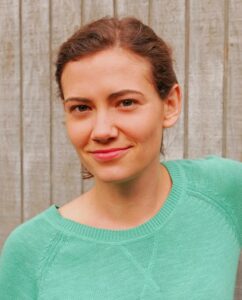With a new foreword from Robin Wall Kimmerer, New York Times-bestselling author of Braiding Sweetgrass—and an afterword from Bill McKibben—this special 25th anniversary edition of a beloved bestseller invites readers to see ourselves as part of nature, not separate.
THE SACRED BALANCE:
Rediscovering Our Place in Nature
25th Anniversary Edition
by David Suzuki
Greystone, October 2022
 The world is changing at a relentless pace. How can we slow down and act from a place of respect for all living things? THE SACRED BALANCE shows us how.
The world is changing at a relentless pace. How can we slow down and act from a place of respect for all living things? THE SACRED BALANCE shows us how.
In this extensively updated new edition, David Suzuki reflects on the increasingly radical changes in science and nature—from the climate crisis to peak oil and the rise in clean energy—and examines what they mean for humankind. He also reflects on what we have learned by listening to Indigenous leaders, whose knowledge of the natural world is profound, and whose peoples are on the frontlines of protecting land and water around the world.
Drawing on his own experiences and those of others who have put their beliefs into action, The Sacred Balance combines science, philosophy, spirituality, and Indigenous knowledge to offer concrete suggestions for creating an ecologically sustainable future by rediscovering and addressing humanity’s basic needs.
“The most complete expression to date of an environmental ethic from one of the world’s leading conservation writers, combining science, theology, poetry, and philosophy to express a worldview towards which the human species must shift… THE SACRED BALANCE has a beautiful spirit.” —E.O. Wilson
David Suzuki is an internationally renowned geneticist, environmentalist, author of more than fifty books, and the founder of the David Suzuki Foundation.
Robin Wall Kimmerer is the author of the New York Times bestseller Braiding Sweetgrass and Gathering Moss. She is a mother, scientist, decorated professor, and enrolled member of the Citizen Potawatomi Nation.

 Political upheaval and social turmoil have peeled back the glitzy layers of capitalism to reveal an uncomfortable truth: historically, businesses have sourced materials from remote corners of the globe and moved millions of people and tons of cargo around the clock—all in the name of profit. Yet many of today’s startups are rewriting the rules of business: how it’s done, by whom, and, most importantly, for what purpose. Journalist Esha Chhabra draws on her decades of reporting to explore not only the “feel good, do good” factors of these restorative enterprises but also the nuanced realities and promise of regenerative business operations.
Political upheaval and social turmoil have peeled back the glitzy layers of capitalism to reveal an uncomfortable truth: historically, businesses have sourced materials from remote corners of the globe and moved millions of people and tons of cargo around the clock—all in the name of profit. Yet many of today’s startups are rewriting the rules of business: how it’s done, by whom, and, most importantly, for what purpose. Journalist Esha Chhabra draws on her decades of reporting to explore not only the “feel good, do good” factors of these restorative enterprises but also the nuanced realities and promise of regenerative business operations.
 Award-winning climate journalist Eduardo Garcia offers a deeply researched and user-friendly guide to the things we can do every day to fight climate change. Based on his popular New York Times column “One Thing You Can Do,” this fully illustrated book proposes simple solutions for an overwhelming problem. No lectures here—just accessible and inspiring ideas to slash emissions and waste in our daily lives, with over 350 explanatory illustrations by talented painter Sara Boccaccini Meadows.
Award-winning climate journalist Eduardo Garcia offers a deeply researched and user-friendly guide to the things we can do every day to fight climate change. Based on his popular New York Times column “One Thing You Can Do,” this fully illustrated book proposes simple solutions for an overwhelming problem. No lectures here—just accessible and inspiring ideas to slash emissions and waste in our daily lives, with over 350 explanatory illustrations by talented painter Sara Boccaccini Meadows.